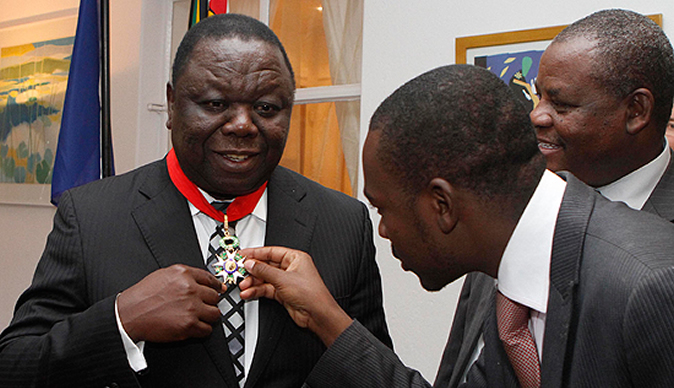Freeman Chari, an activist for the Citizens Coalition for Change (CCC) based in the United States, has criticized the late MDC leader Morgan Tsvangirai for setting a bad precedent. Chari argues that Tsvangirai’s decision to recall Arnold Tsunga, who had won against Tsvangirai’s preferred candidate Giles Mutsekwa, was problematic.
Chari’s comments come amidst a dispute within the CCC, as Sengezo Tshabangu claims to be the interim secretary-general and has been recalling CCC MPs and councillors. Tshabangu argues that these individuals no longer belong to the party. He further alleges that some of the MPs and councillors were imposed on the electorate by CCC leader Nelson Chamisa. Chari said:
In 2013 Tsvangirai recalled Arnold Tsunga after he had stood against his prefered candidate Giles Mutsekwa and won. That was a despotic move that set a very bad precedent. Some folks that feel aggrieved today supported this. Kudzorana mustruggle kwakanaka!
In the lead-up to the 2013 harmonized elections in Zimbabwe, former Prime Minister Morgan Tsvangirai instructed human rights lawyer Arnold Tsunga and Patrick Sagandira to withdraw their candidacies in Dangamvura-Chikanga and Makoni Central constituencies, respectively. Tsvangirai had endorsed Giles Mutsekwa for Dangamvura-Chikanga and Simba Makoni, the leader of Mavambo/Kusile/Dawn, for Makoni Central, following an electoral pact with Makoni.
Tsvangirai made it clear that if Tsunga and Sagandira didn’t comply with his directive, they would be expelled from the party. The MDC-T acting national chairman at the time, Morgen Komichi, emphasized that the party would not tolerate indiscipline and that those who defied Tsvangirai’s endorsement would face expulsion.
Despite the warning, Tsunga chose to contest the election under the MDC-T ticket and emerged victorious with 11,757 votes. Mutsekwa, also running under the MDC-T, received only 3,851 votes.
Tsunga was ultimately recalled in 2015, along with 20 other members of Parliament. This move significantly reduced the number of opposition representatives in both Houses. The 21 individuals were aligned with Tendai Biti’s faction, which had broken away from the Morgan Tsvangirai-led MDC-T due to internal conflicts. Biti, who initially opposed the recall and claimed to still hold the position of secretary general in the MDC was now leading the MDC Renewal. The ruling party, ZANU PF, with 255 legislators, benefited from the recall, strengthening their control over Parliament. The MDCs, citing an unfair playing field, decided to boycott the by-elections, leaving all 13 available seats to be won by ZANU PF.



Back to top